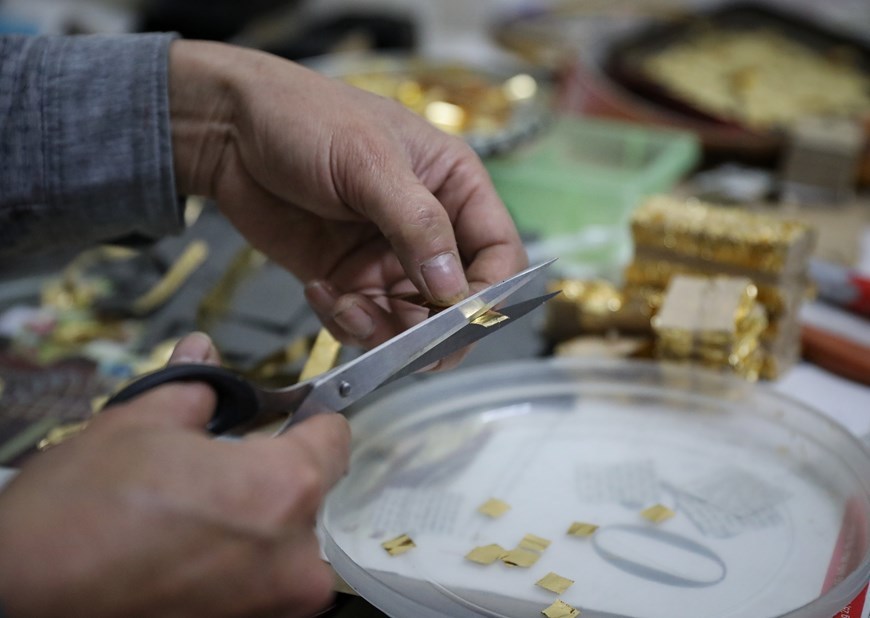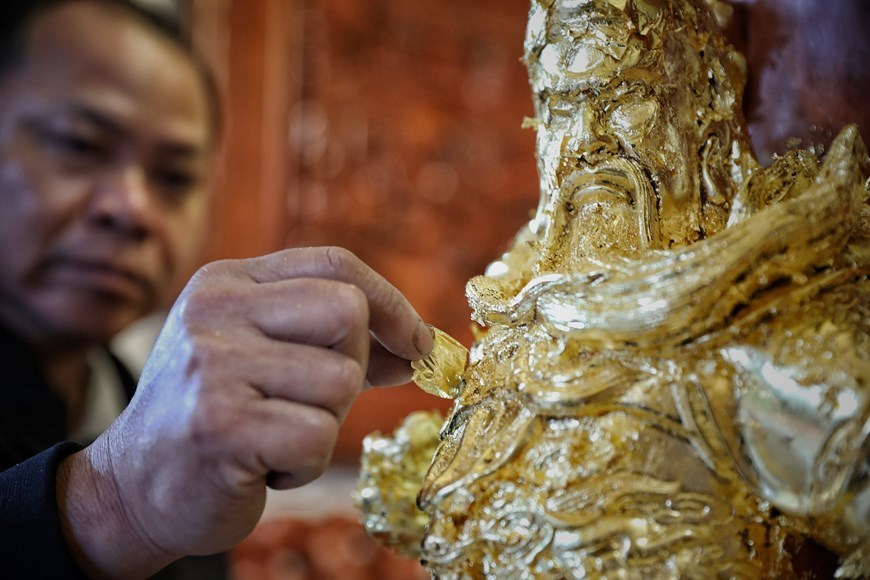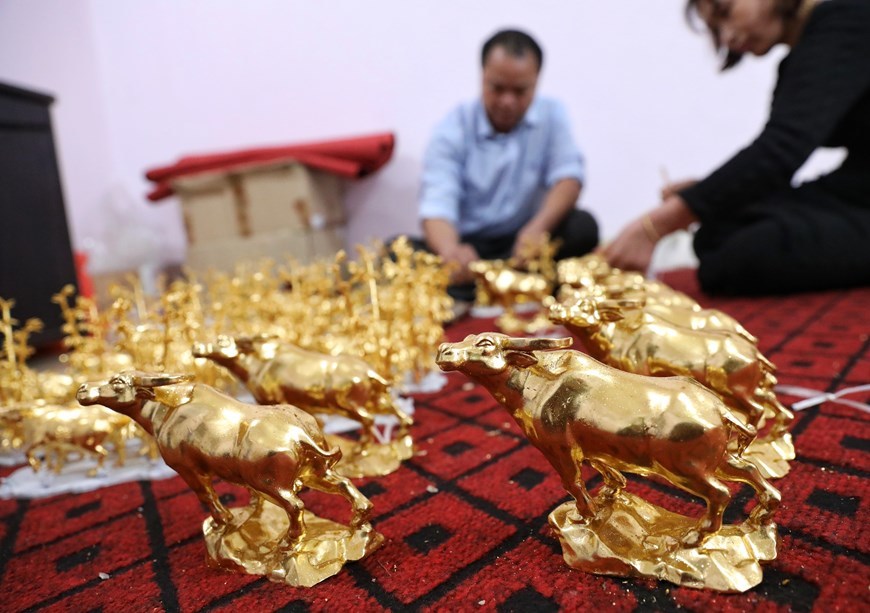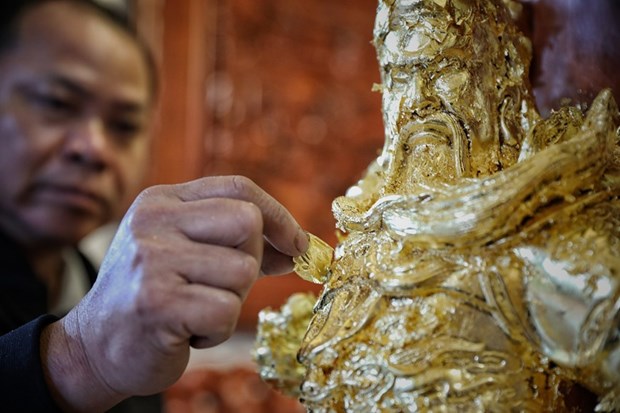 |
|
An artisan in Kieu Ky village overlays a statue with super-thin gold leaves (Photo: VNA) |
Throughout the years, local people have retained their traditional profession with a craftsmanship process that requires ingenuity and sophistication.
The craft was recognised as one of eight national cultural heritages by the Ministry of Culture, Sports and Tourism this week.
The craft is thought to have been founded by Nguyen Quy Tri from the northern province of Hai Duong in the Canh Hung reign (1740-1786). Tri then passed it down to Kieu Ky villagers.
To show their gratitude to the founder of the craft, the villagers have built a temple dedicated to Tri and consider the 17th day of the eighth lunar month as his death anniversary.
Kieu Ky gold laminating craft thrived before the August Revolution in 1945 when the craft of making precious gold was for most of the imperial religious works to inlay statues of Buddha, thrones, diaphragms, couplets, processions and lacquer paintings.
It was on the brink of oblivion during Vietnam’s two resistance wars against the French and the US, but has been restored and developed since the unification of the country in 1975.
At present, nearly 50 families in Kieu Ky village still practice the traditional craft, many of whom are large-scale production households.
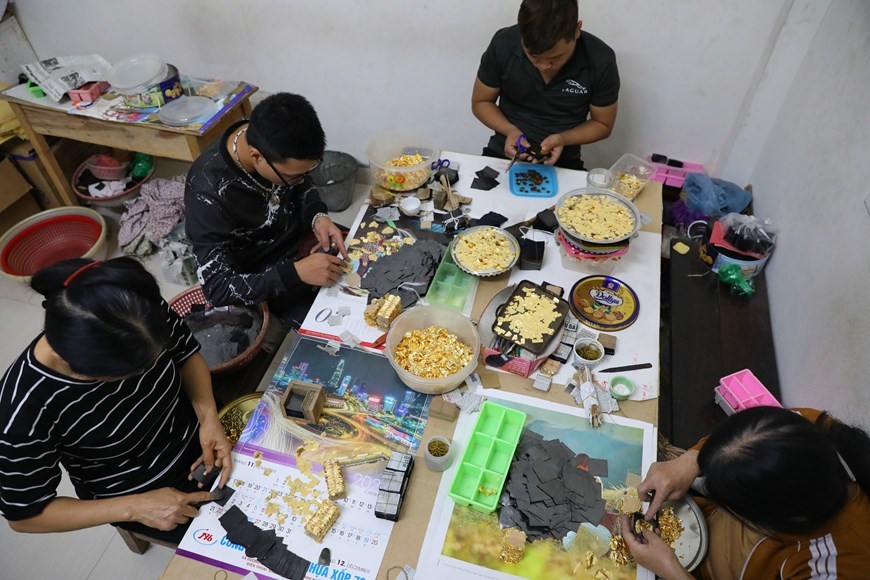 |
||||
|
The gold-making process consists of many different stages and requires complex skills. (Photo: VNA)
|
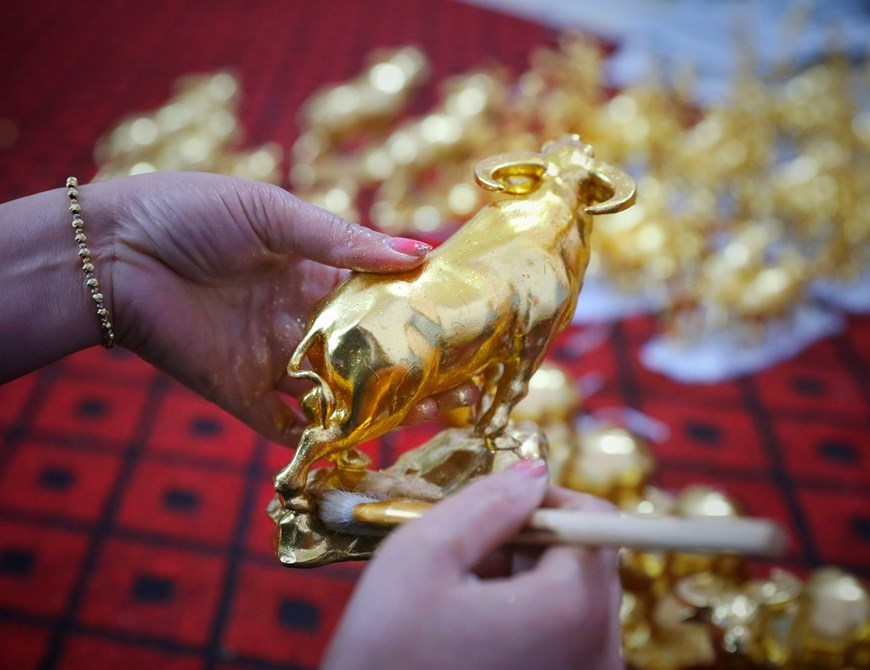 |
||
|
|
VNA
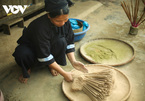
Incense-making craft of Nung ethnic group in Cao Bang
The craft of producing incense practiced by the Nung ethnic minority in the northern province of Cao Bang has been passed down from generation to generation.
